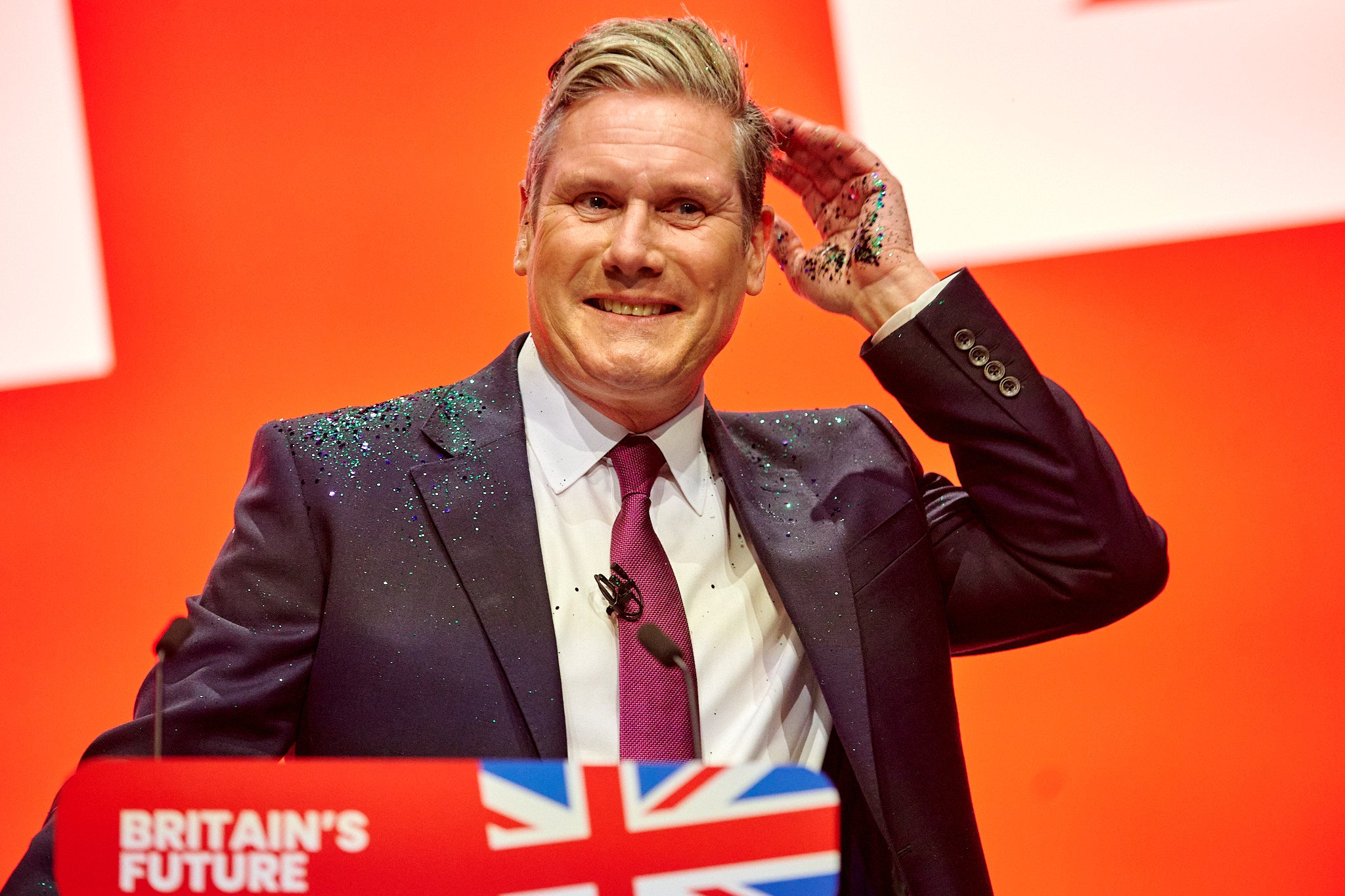Keir Starmer has a huge problem with the ‘F’ word
The Labour leader has been accused of ‘flip-flopping’ on policies, writes Andrew Grice. But while Starmer will call his approach pragmatic, will voters see him as just another fairweather politician?


One big question Keir Starmer did not address in his impressive Labour conference speech was the Conservatives’ claim he is a “flip-flopper” who will say anything to get into power and then do something else when he gets there.
I can see why Starmer dodged the issue, even though private conversations here at the Liverpool conference confirm it is on many Labour minds. He didn’t want headlines in Tory-supporting newspapers that included the words “Starmer” and “flip-flop.”
True, a good rule in politics is: never fight on your opponents’ favoured territory. By acknowledging he has a problem, Starmer have might magnified it.
Yet this might have been a good time to tackle head-on a question he finds difficult and is avoiding. He could have deployed the economist John Maynard Keynes’s defence: “When the facts change, I change my mind; what do you do, sir?”
Rishi Sunak used it to defend the government’s spectacular U-turn on HS2, telling last week’s Tory conference: “The right thing to do when the facts change is to have the courage to change direction.”
Although politicians often fear and get a hostile media reaction for a U-turn, the public are sometimes more understanding than they expect. But a repeat offender can leave an unfavourable impression as a wobbler without convictions; that is why the Tories have seized on this line of attack against Starmer.
They point to him wanting Jeremy Corbyn to become prime minister; his previous support for a referendum on the Brexit deal and his retreat from several pledges made in the 2020 Labour leadership election, including the scrapping of university tuition fees; public ownership of the mail, energy and water industries; a free movement deal with the EU and the abolition of universal credit.
His supporters insist a clear majority of his promises and the principles behind them – economic, social and climate justice – remain intact. They say Starmer, who didn’t mention Brexit in his speech despite growing public hostility to it, wants to look forward rather than back. Yet improving the UK-EU deal will have to play a role in securing the economic growth which is his number one priority.
In his speech, Starmer could have argued that, given the pandemic and war in Ukraine, the economic picture has changed dramatically since his leadership campaign. He could have added the chaos of Liz Truss’s regime, which has left both main parties ultra-nervous about losing the confidence of the financial markets.
Starmer will need to address his F-word problem at some point before the election. During his round of media interviews as the Labour conference drew to a close today, he was asked how we can know he would implement his policies when a lot of what he previously stood for had been abandoned. “That is why we are bomb-proofing every policy,” he told BBC Breakfast. “I accept that this means there have been adjustments in policy … After the last 13 years, I don’t think it’s fair or right to ask the British public to go through more broken promises.”
His tentative defence leaves the Tories with plenty of ammunition.
Unable to defend their own record, they have made Starmer’s character an issue. His allies insist he is a man of integrity, contrasting that with the rule breaking of the Tory years epitomised by Partygate.
While the dark economic clouds are mainly responsible for Starmer’s flip-flops, I think they also stem from an attractive trait. He is a pragmatist who came into politics relatively late in his career and whose approach is therefore not coloured by factionalism or ideology such as the Blair-Brown battles of the New Labour era. He is bemused by the labels we pin on politicians in the same party.
Most leaders would instinctively try radicalism first and if that doesn’t work, try pragmatism. In contrast, Starmer opts for the most logical route and if that isn’t successful, he tries something else. So it’s pragmatism tempered by radicalism rather than the other way round. No bad thing, even if some in his party would like a bigger dose of radicalism. I suspect most voters would choose pragmatism, thinking that radical equals Truss.
In his speech, Starmer said what business wants is an end to the “chopping and changing” of the current government. But behind the genuine smiles and growing confidence at the Labour conference, I detect anxiety that Starmer’s own “chopping and changing” could prove the Tories’ most dangerous weapon. As one close Starmer ally whispered: “It’s his and our main achilles heel.”






Join our commenting forum
Join thought-provoking conversations, follow other Independent readers and see their replies
Comments